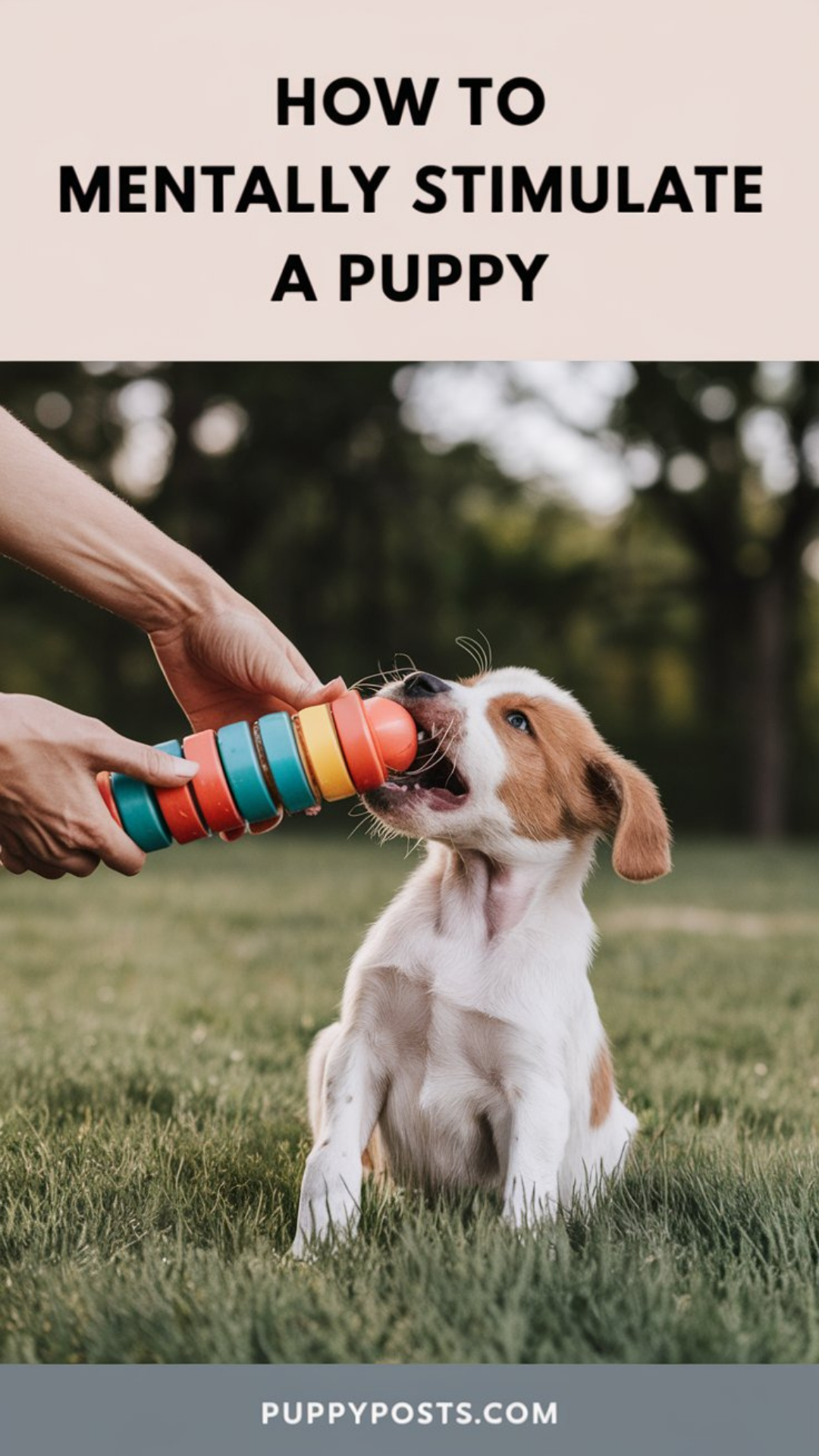How to mentally stimulate a puppy
Let’s get straight to the point—puppies aren’t just bundles of cuteness; they’re tiny, curious minds in fast development. If you want a well-behaved, balanced dog down the road, you’ve got to start challenging that brain early. Otherwise, you’ll deal with a bored, frustrated puppy—and nobody wants that.
I’ve been a veterinarian for over ten years and run a sanctuary for stray dogs and cats here in New Jersey. I’ve seen firsthand what happens when puppy brains get left idle: destructive behavior, anxiety, and stubbornness. So here’s the no-nonsense guide to mentally stimulating your puppy the right way, with a calm but firm approach.

1. Understand Why Mental Stimulation Matters
Your puppy’s brain is a sponge—absorbing new information at a rapid pace. Mental stimulation helps them:
- Build focus and attention
- Burn off excess energy without physical strain
- Develop problem-solving skills
- Reduce anxiety and destructive tendencies
Without mental work, puppies get bored—and boredom leads to trouble.
2. Start Training Early and Keep It Consistent
Training is the foundation of mental stimulation. Don’t wait until they’re older to start.
- Use short sessions (5–10 minutes) several times a day
- Teach basic commands: sit, stay, come, leave it
- Reward calm, focused behavior—not just obedience
- Keep your tone firm and clear, not loud or frantic
Consistency builds confidence and creates structure your puppy can rely on.
3. Use Puzzle Toys and Food-Dispensing Games
Feeding time is prime mental workout time. Instead of dumping kibble in a bowl, make your puppy think before they eat.
- Try puzzle feeders or treat-dispensing toys
- Hide kibble in snuffle mats or around the room
- Increase difficulty gradually as they learn
These activities challenge their problem-solving skills and slow down fast eaters.
4. Play Scent and Hide-and-Seek Games
Puppies have a natural instinct to sniff and explore. Use that to your advantage.
- Hide treats under cups or in easy-to-find spots
- Play “find it” by tossing a toy and asking them to retrieve it
- Introduce scent trails with kibble or toys for them to follow
Scent games build focus, confidence, and tire their mind gently.
5. Teach Impulse Control from Day One
Mental stimulation isn’t just about active games—it’s about teaching patience and self-control.
- Practice wait before meals and doorways
- Use leave it around distractions
- Build duration on stay gradually
- Reward calmness, not jumping or barking
Impulse control sets the groundwork for a calm, obedient dog.
6. Rotate Toys and Activities
Keep things fresh. Puppies get bored with the same toys and games quickly.
- Rotate toys every few days
- Introduce new games that challenge different skills (tug, fetch, obedience)
- Use interactive toys that require problem-solving
Variety keeps their interest and challenges their brain from different angles.
7. Socialize with Purpose
New experiences stimulate the brain in real-world ways.
- Introduce your puppy to different people, animals, and environments
- Keep interactions positive and controlled
- Use new sounds, sights, and smells as mental challenges
Socialization teaches your puppy how to process information and adapt calmly.
Final Word: Build the Brain Before You Build the Body
Mental stimulation is not a luxury; it’s a necessity. If you want a balanced, well-behaved dog, start with the mind.
Challenge your puppy daily with training, puzzles, scent work, impulse control, and socialization. Keep your approach calm, consistent, and firm. Your patience and leadership now will pay off with a confident, focused dog for life.
Here in New Jersey, we don’t settle for half-measures. Your puppy’s brain deserves the best start you can give.






